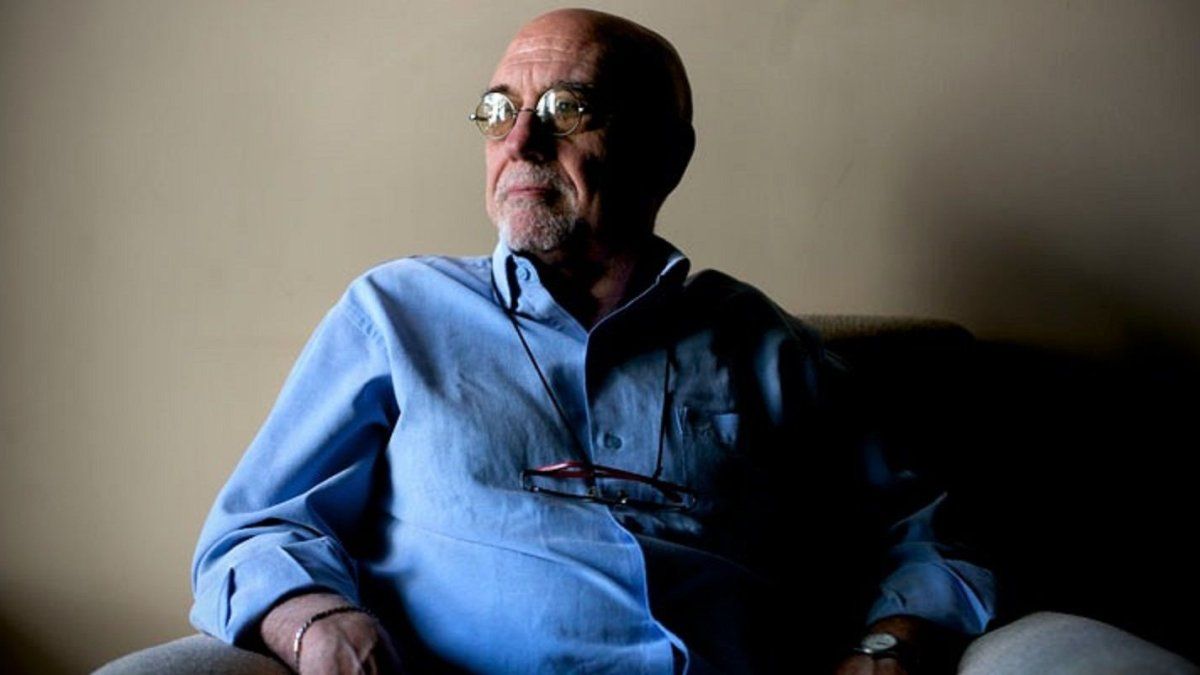With “The simulation of mirrors ” (Hugo Benjamín Editor), Enigmatic History, Intriguing, of a restricted place where the supposed freedom to offer is limited, the narrator and screenwriter Vicente Battistaat 85, he won the Romulo Gallegos International Prize. We dialogue with him.
Journalist: Is your novel an allegory of current reality?
Vicente Battista: “The simulation of mirrors” was created in the middle of the pandemic, when we had to be locked between four walls. With my wife everything was to eat something, look at programs on television, read and, in my case, get to write. There the idea of a closed site arose that some people choose to live. Thus appeared that place where those who inhabit are neither by obligation nor for punishment, but for the opposite. In order to enter the place, you must previously go through a very rigorous exam. In addition, before being admitted you have to accept all the rules. Some are keeping distance with others, not expressing feelings, not touching yourself, dealing with you. In that world, which is happy, at least for those who have been chosen and those chosen to belong to the place, the story unfolds.
Q.: That “happy world” evokes that of the famous novel by Aldous Huxley?
VB: “The simulation of mirrors” has three referential works. “We” from the Russian Evguni Zaniatin, “a happy world” by Huxley and “! 984” by George Orwell. Zaniatin, author a bit forgotten today, wrote in 1920 the story of a fully mechanized citadel, where the inhabitants seem happy. Zaniatin is a bit the father of all those who later wrote such dystopia, especially Huxley and Orwell. When I read those books, fiction occurred to me that at that time they had nothing to do with reality, and that today are part of our daily life, a digital world, manual devices of multiple services, artificial intelligence, modification of human life from birth, constant surveillance, etc. That is the place where the chosen and the chosen roam, although some wishes must leave them when entering. Other referents of the novel are, obviously, Kafka, Buzzati, Calvino.
Q.: Is the place a castle, a hotel, a hospital or an enigma that exposes the tools of power, the supposed freedom that is actually submission?
VB: The place is multiple. It has rooms for the chosen and for the chosen ones. No one can enter the room of another, it is rigorously punished. There are no windows outside. There is daily breakfast, lunch, snack and dinner. Whoever wants to eat goes to the dining room at the established schedule, but does not eat. TVs broadcast soap operas. Everything is determined and managed by the administration that establishes the routines and which any chosen or chosen can enter. The exception is the chosen Artemio, who is called and comes out with information or order.
Q.: Octavio Premisse, the protagonist, can you enter the place because he is a chosen one?
VB: There are no chosen. Those who are postulated, wanted to be, and had to overcome a very hard exam. A lot was bounced and was left out. Octavio at times feels out of time, he does not finish accepting everything. He hides photos of his girlfriends, with whom he walks.
Q.: In some cases it is braking by Artemio that says: Be it, they are entitled to everything, you gave you that right. How do they live in that clean, orderly, oppressive place?
VB: They live as automatons without feelings. Except in the case of a man who tells how the outside was for him, none of the chosen and chosen knows anything. None feel curious about the life of the chosen one or the chosen one. They live in post -truth. If a chosen one says: I was a symphonic musician, the rest accepts it no matter how much a single symphony has composed. Acceptance is one of the rules of coexistence in place.
Q.: They have pauses where they meet to talk in a room that is dominated by a writer.
VB: Requejo, says he is a writer. In the Library of El Place there is no book that you have written. The gatherings are made around their armchair debating the most absurd things. I wanted to put myself in that world through a very secondary character and be able to be there. That has to do with the narrative proposal. Following the guidelines of the place the narrator is not omniscient. He has no idea that they think or feel the characters. If you know it, or suppose it, it is because of your actions, for what they say or do. Everything is subject to assumptions. Except when actions mark an intention, when love appears, for example, love.
Q.: Why did you choose a Borgian title?
VB: At the beginning it was going to be called “The doors of the night” as a tribute to the beginning of “The stretching of Gesualdo Bufalino, but in the middle of the writing I reread the poem” La Recoleta “de Borges and when reading” the simulation of mirrors “I felt that in that verse was what I tried to raise in the novel.
Q.: The Romulo Gallegos International Award is endowed with 80,000 euros …
VB: … and a diploma, and a gold medal. What interested me is that the novel competed with another 474 in Spanish from the entire world. That the award has been conquered Vargas Llosa, García Márquez, Bolaño, Piglia, among others. My daughter reminded me that forty years ago I won with “Argentine events” the planet prize that was 40,000 pesos, which was equivalent to $ 40,000, now thirty years later with “the simulation of mirrors” won exactly double. I do not believe that in thirty years I present myself to another contest with a new novel.
Q.: What are you writing now?
VB: A storybook of which I have the title, which is something important because it is going to be called “What will come”, a title I took from a theme of my friend Astor Piazzolla. They will be fantastic, dystopian stories and some with some police.
Source: Ambito
I am an author and journalist who has worked in the entertainment industry for over a decade. I currently work as a news editor at a major news website, and my focus is on covering the latest trends in entertainment. I also write occasional pieces for other outlets, and have authored two books about the entertainment industry.




